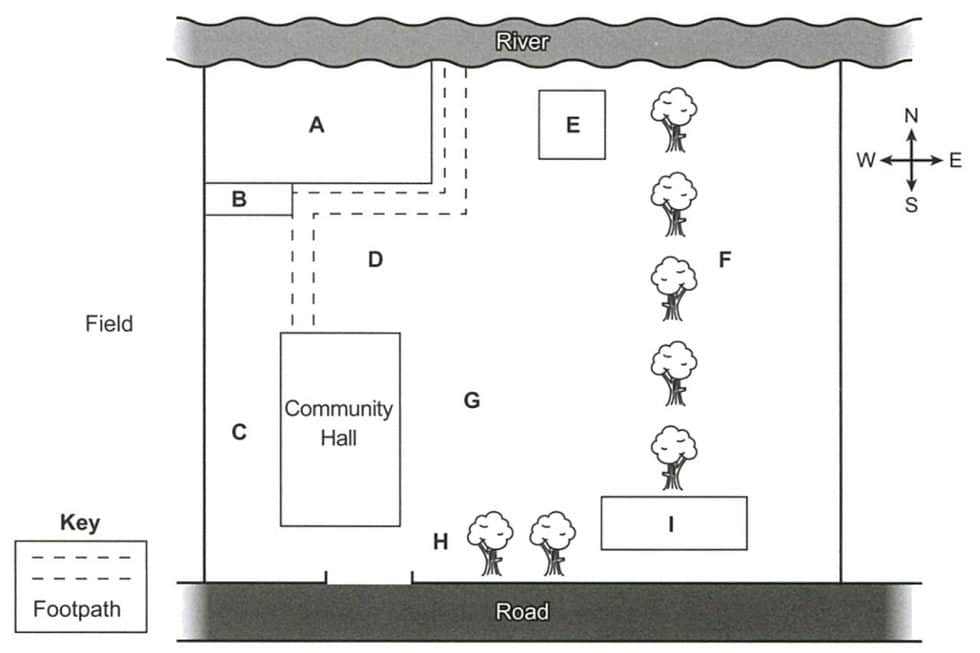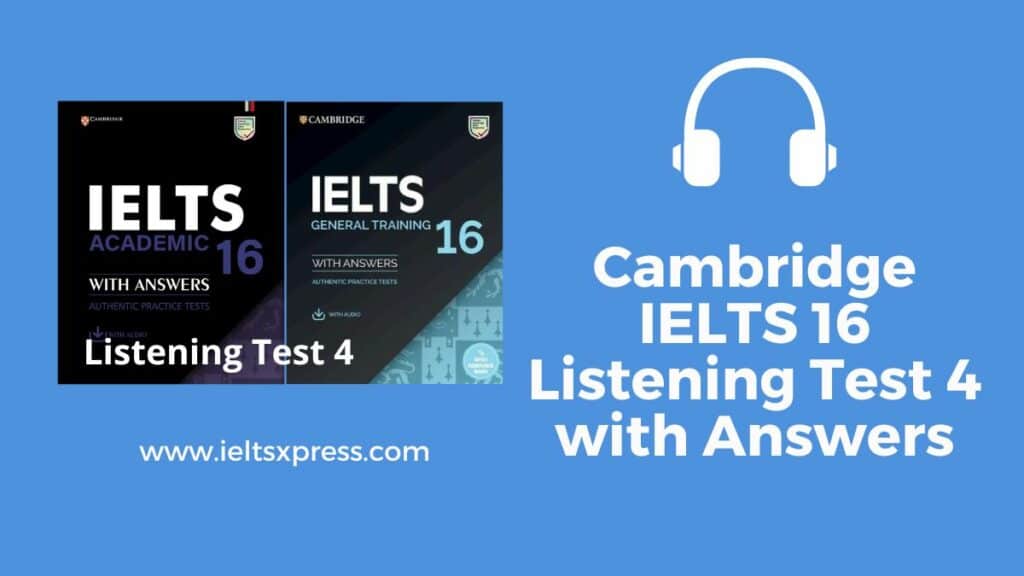Cambridge IELTS 16 Listening Test 4
Cambridge IELTS 16 Listening Test 4 offers an excellent opportunity for IELTS candidates to practice and improve their listening skills with a diverse set of topics. In this test, you will engage with recordings that cover practical scenarios such as Holiday Rentals, providing insights into conversations about booking and managing holiday properties. Additionally, the test includes a Local Council Report on Traffic and Highways, where you’ll listen to discussions on urban planning and infrastructure. Lastly, you will hear about The Extinction of the Dodo Bird, diving into environmental history and the impact of human activity on species extinction.
By practicing with this test, you can refine your listening comprehension and familiarize yourself with the types of questions commonly asked in the IELTS exam.
Cambridge IELTS 16 Listening Test 4 – Part 1
Questions 1 – 10
Complete the notes below.
Write ONE WORD AND/OR A NUMBER for each answer.
Holiday Rental
Owner’s names: Jack Fitzgerald and Shirley Fitzgerald
Granary Cottage
● available for week beginning 1 …………….. May
● cost for the week: 2 £……………..
3 …………….. Cottage
● cost for the week: £480
● building was originally a 4 ……………..
● walk through doors from living room into a 5 ……………..
● several 6 …………….. spaces at the front
● bathroom has a shower
● central heating and stove that burns 7 ……………..
● views of old 8 …………….. from living room
● view of hilltop 9 …………….. from the bedroom
Payment
● deposit: £144
● deadline for final payment: end of 10 ……………..
Cambridge IELTS 16 Listening Test 4 – Part 2
Questions 11-14
Choose the correct letter, A, B or C.
Local council report on traffic and highways
11 A survey found people’s main concern about traffic in the area was
A cuts to public transport.
B poor maintenance of roads.
C changes in the type of traffic.
12 Which change will shortly be made to the cycle path next to the river?
A It will be widened.
B It will be extended.
C It will be resurfaced.
13 Plans for a pedestrian crossing have been postponed because
A the Post Office has moved.
B the proposed location is unsafe.
C funding is not available at present.
14 On Station Road, notices have been erected
A telling cyclists not to leave their bikes outside the station ticket office.
B asking motorists to switch off engines when waiting at the level crossing.
C warning pedestrians to leave enough time when crossing the railway line.
Questions 15-20
Label the map below.
Write the correct letter, A-I, next to Questions 15-20.
Recreation ground after proposed changes

15 New car park ……………
16 New cricket pitch ……………
17 Children’s playground ……………
18 Skateboard ramp ……………
19 Pavilion ……………
20 Notice board ……………
Cambridge IELTS 16 Listening Test 4 – Part 3
Questions 21-22
Choose TWO letters, A-E.
Which TWO benefits of city bike-sharing schemes do the students agree are the most important?
A reducing noise pollution
B reducing traffic congestion
C improving air quality
D encouraging health and fitness
E making cycling affordable
Questions 23-24
Choose TWO letters, A-E.
Which TWO things do the students think are necessary for successful bike-sharing schemes?
A Bikes should have a GPS system.
B The app should be easy to use.
C Public awareness should be raised.
D Only one scheme should be available.
E There should be a large network of cycle lanes.
Questions 25-30
What is the speakers’ opinion of the bike-sharing schemes in each of the following cities?
Choose SIX answers from the box and write the correct letter, A-G, next to Questions 25-30.
Opinion of bike-sharing scheme
A They agree it has been disappointing.
B They think it should be cheaper.
C They are surprised it has been so successful.
D They agree that more investment is required.
E They think the system has been well designed.
F They disagree about the reasons for its success.
G They think it has expanded too quickly.
Cities
25 Amsterdam …………….
26 Dublin …………….
27 London …………….
28 Buenos Aires …………….
29 New York …………….
30 Sydney …………….
Cambridge IELTS 16 Listening Test 4 – Part 4
Questions 31 – 40
Complete the notes below.
Write ONE WORD ONLY for each answer.
THE EXTINCTION OF THE DODO BIRD
The dodo was a large flightless bird which used to inhabit the island of Mauritius.
History
● 1507 – Portuguese ships transporting 31 ………………. stopped at the island to collect food and water.
● 1638 – The Dutch established a 32 ………………. on the island.
● They killed the dodo birds for their meat.
● The last one was killed in 1681.
Description
● The only record we have is written descriptions and pictures (possibly unreliable).
● A Dutch painting suggests the dodo was very 33 ………………. .
● The only remaining soft tissue is a dried 34 ………………. .
● Recent studies of a dodo skeleton suggest the birds were capable of rapid 35 ………………. .
● It’s thought they were able to use their small wings to maintain 36 ………………. .
● Their 37 ………………. was of average size.
● Their sense of 38 ………………. enabled them to find food.
Reasons for extinction
● Hunting was probably not the main cause.
● Sailors brought dogs and monkeys.
● 39 ………………. also escaped onto the island and ate the birds’ eggs.
● The arrival of farming meant the 40 ………………. was destroyed.
Audio Transcript
Cambridge IELTS 16 Listening Test 4 Audio Transcript
Cambridge IELTS 16 Listening Test 4 Answers
Practice with Expert IELTS Tutors Online
Apply Code "IELTSXPRESS20" To Get 20% off on IELTS Mock Test
Holiday Rental Listening Answers
1 28th
2 550
3 Chervil
4 garage
5 garden
6 parking
7 wood
8 bridge
9 monument
10 March
Local council report on traffic and highways Listening Answers
11 C
12 A
13 B
14 B
15 C
16 F
17 A
18 I
19 E
20 H
Opinion of bike-sharing scheme Listening Answers
21&22 B, C
23&24 B, C
25 C
26 F
27 D
28 E
29 B
30 A
THE EXTINCTION OF THE DODO BIRD Listening Answers
31. spice(s)
32. colony / settlement
33. fat
34. head
35. movement
36. balance / balancing
37. brain
38. smell
39. rats
40. forest
Also Check: Cambridge IELTS 16 Academic Reading 4 with Answers







